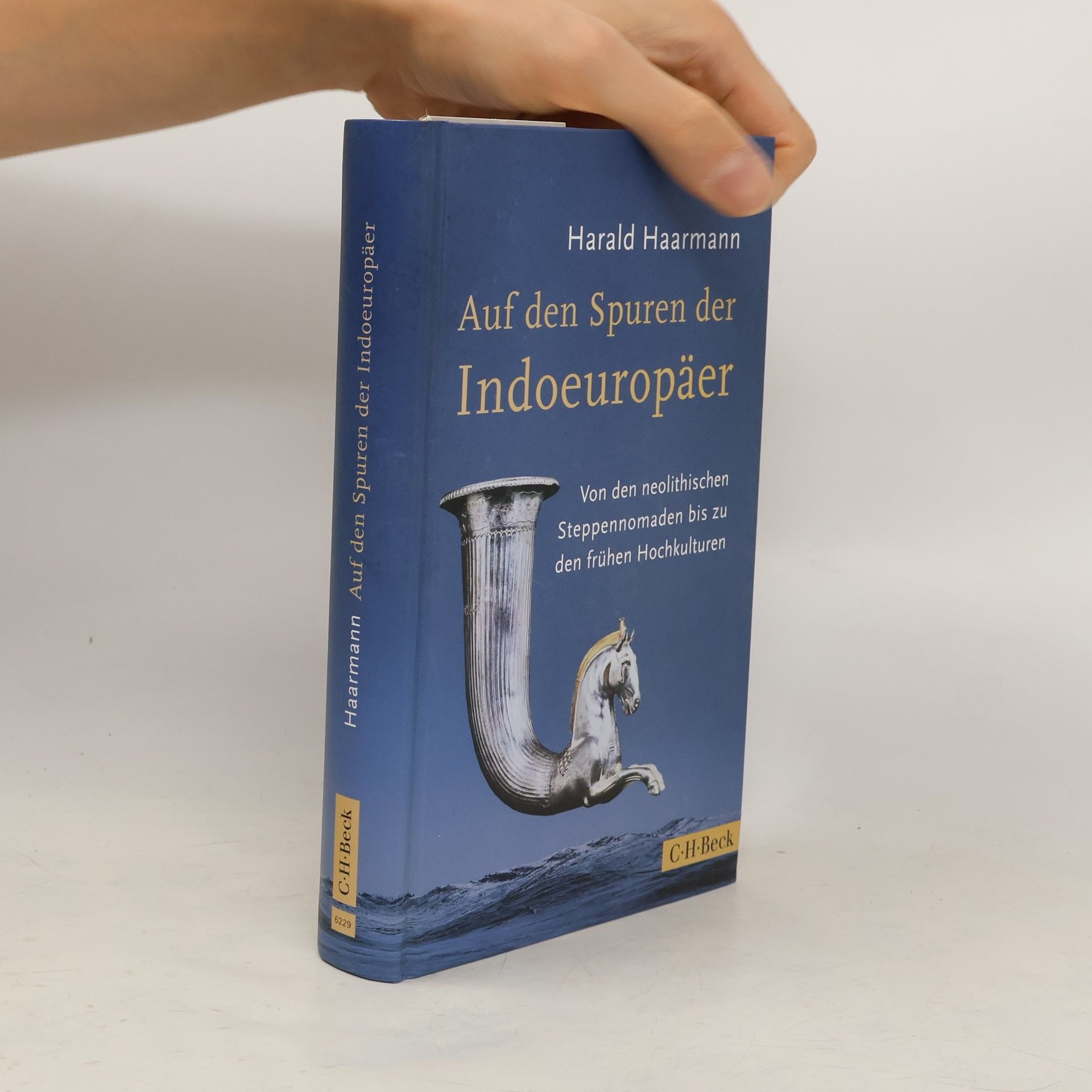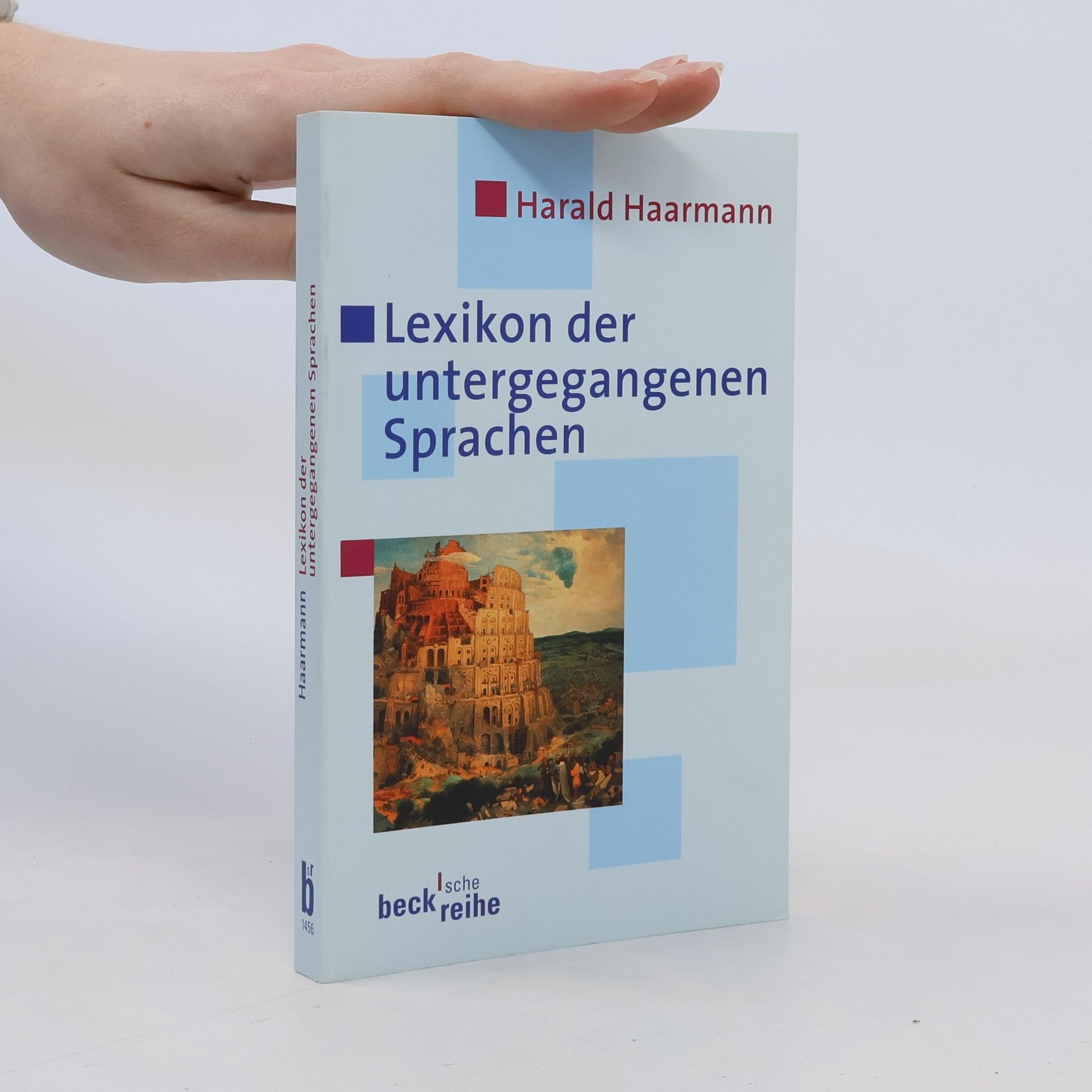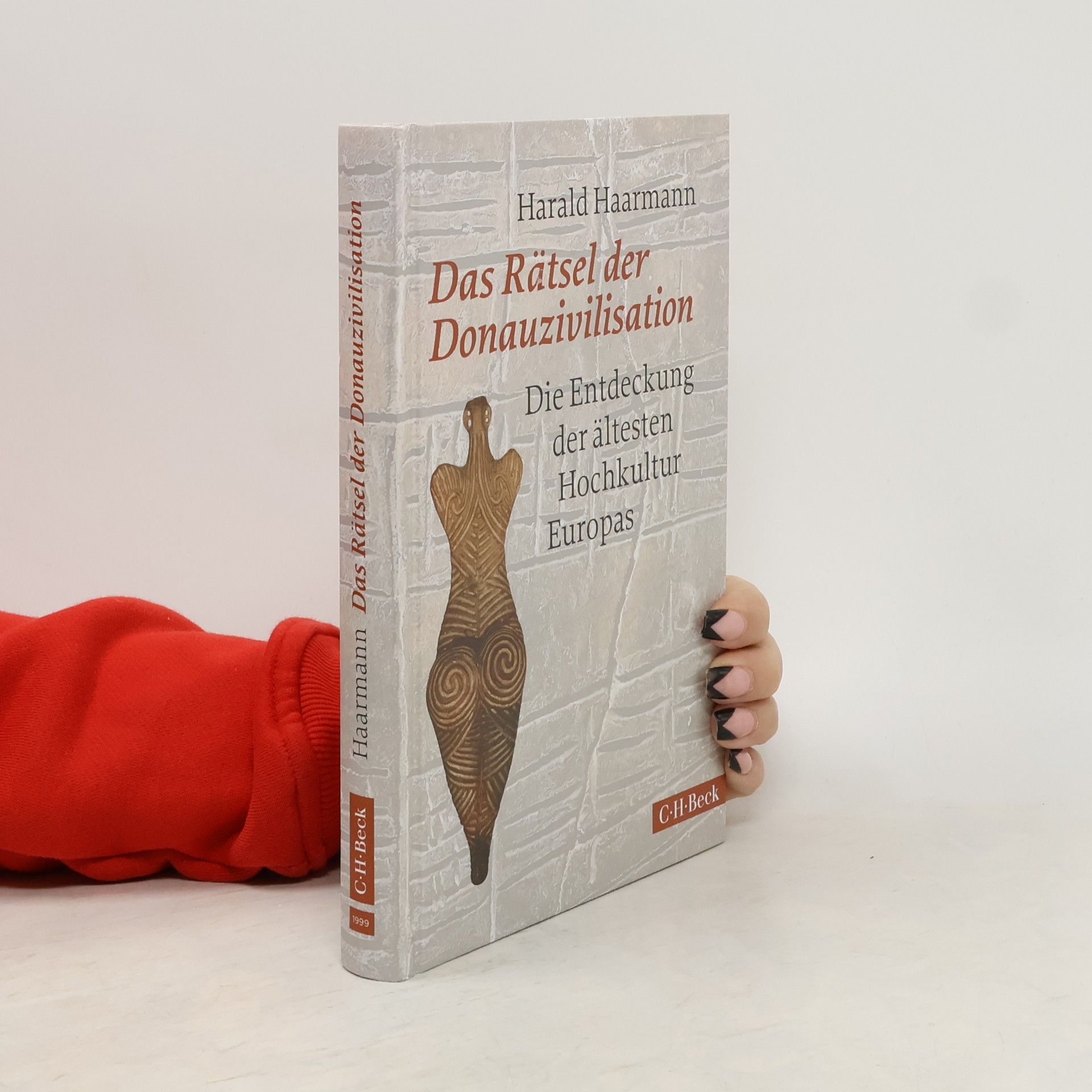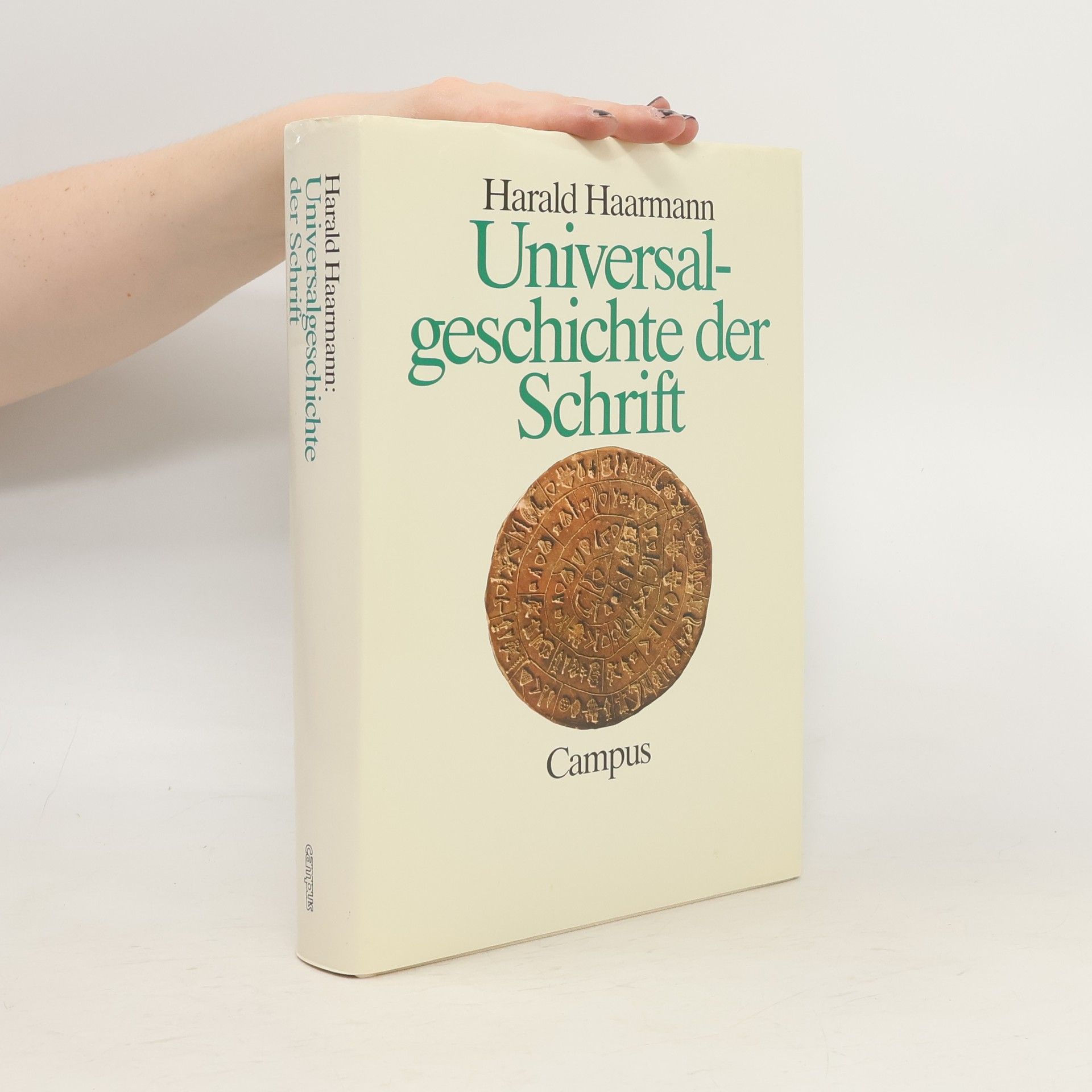Sprache - Schrift - Kultur - Religion - Geschichte - Philosophie
Publikationen (1970–2020)







Publikationen (1970–2020)
Die alten Griechen und Ägypter stehen in jedem Geschichtsbuch, aber was ist mit dem sagenhaften Goldland Punt oder dem paradiesischen Dilmun? Viele Kulturen sind heute nur noch in Sagen von exotischen Ländern oder archäologischen Zeugnissen greifbar. Harald Haarmann nimmt in seinem kurzweiligen Buch 25 dieser Stiefkinder unter die Lupe und zeigt, was uns bisher entgangen ist. Manche Kulturen werden für immer vergessen bleiben, andere haben zumindest Spuren hinterlassen, denen wir folgen können. Harald Haarmann entdeckt steinzeitliche Siedlungen am Baikalsee, geht dem Rätsel der Pelasger nach, der vorindoeuropäischen Bevölkerung Griechenlands, findet einen historischen Kern in den Geschichten von den Amazonen-Kriegerinnen vom Schwarzen Meer, erklärt die seltsame Kultur der Osterinsel, die durch hausgemachte Umweltprobleme unterging, und beschreibt die jüngst entdeckten Reste von Großsiedlungen in der südlichen Amazonas-Region, wo man bisher nur Jäger und Sammler im unberührten Urwald vermutet hat. Insgesamt zeigen die 25 Stiefkinder, dass die Menschheit mehr Optionen hatte, als wir denken. In einer Zeit, in der uns die Schattenseiten unserer eigenen Kultur bewusst werden, sollten wir uns an die verlorenen Pfade erinnern. Mit 52 Abbildungen und Karten.
Auf unserem Planeten werden heute 5.000 Sprachen gesprochen, nur 650 davon werden geschrieben. Wie kommt es, dass die chinesische Schrift, die wohl umständlichste und aufwändigste Schreibweise der Schriftgeschichte, sich bis ins Computerzeitalter als Alltagsschrift behauptet? Und wieso wird das Türkische (eine arabische Sprache) in lateinischen Buchstaben geschrieben? Schrift ist weit mehr als nur ein schlichtes Zeichensystem zur Übermittlung von Informationen. Der renommierte Sprachwissenschaftler Harald Haarmann lädt ein zu einer „spannenden Abenteuerreise durch die vielfältigen Schrift-Kulturen dieser Welt“ (Die Presse). Das durchgehend illustrierte Standardwerk ist die bisher umfassendste Dokumentation aller Schriftsysteme in einem Band
In den letzten Jahren haben Archäologen immer mehr Belege dafür gefunden, dass es zwischen dem 6. und dem 3. Jahrtausend v. Chr. auf dem Balkan eine Hochkultur gab, die bereits vor den Mesopotamiern die Schrift kannte. Harald Haarmann führt in seinem Buch erstmals umfassend in diese bisher unbekannte, in vielem noch rätselhafte alteuropäische Kultur ein. Er beschreibt Handelswege und Siedlungen, Kunst und Handwerk, Mythologie und Schrift der Donauzivilisation, geht ihren Ursprüngen am Schwarzen Meer nach und zeigt, welchen Einfluss sie auf die Kultur der griechischen Antike und des Vorderen Orients hatte.
Dieses Lexikon beschreibt in mehr als 100 Artikeln die wichtigsten untergegangenen Sprachen, die unsere eigene Sprache und Kultur wesentlich geprägt haben. Es informiert über Gebiete und Zeiträume ihrer Verbreitung, ihre Zugehörigkeit zu Sprachfamilien, Schriftsysteme, überlieferte Literatur sowie ihren Einfluß auf bis heute gesprochene Sprachen. Eine wichtige Ergänzung zum "Kleinen Lexikon der Sprachen" des gleichen Autors (C. H. Beck 2001).
Seit mehr als 3000 Jahren werden von Indien über Persien bis nach Europa indoeuropäische Sprachen gesprochen. Wo liegen die Ursprünge dieser Sprachfamilie? Wie und wann sind die unterschiedlichen Sprachzweige entstanden? Der renommierte Indogermanist Harald Haarmann schildert anschaulich, was wir heute über die Entstehung der indoeuropäischen Sprachen und Kulturen und ihre frühen Verbreitungswege wissen. Dabei gelingt es ihm eindrucksvoll, linguistische Befunde mit archäologischen Erkenntnissen und neuesten humangenetischen und klimageschichtlichen Forschungen in Beziehung zu setzen. Über sprachliche Verwandtschaften hinaus zeigt er, welche Wirtschaftsweisen, Gesellschaftsformen und religiösen Vorstellungen die frühen Sprecher indoeuropäischer Sprachen vom östlichen Mittelmeer bis zum Indus gemeinsam hatten. Besondere Beachtung finden dabei die Verschmelzungsprozesse mit vorindoeuropäischen Sprachen und Zivilisationen. So entsteht ein faszinierendes Panorama der frühen „indoeuropäischen Globalisierung“ vom Ende der letzten Eiszeit bis zu den frühen Hochkulturen in Griechenland, Kleinasien, Persien und Indien.
Geologen konnten vor einigen Jahren mit einer sensationellen Entdeckung aufwarten: Das Schwarze Meer war lange Zeit ein vom Mittelmeer völlig getrennter, tiefer liegender Süßwassersee. Der Durchbruch des Mittelmeers durch die Landbrücke um 6800 v. Chr. war eine Naturkatastrophe mit kaum vorstellbaren Ausmaßen. Jahrelang ergoß sich ein tosender Wasserfall in das Schwarze Meer und überschwemmte große, teilweise besiedelte Gebiete. Harald Haarmann beschreibt auf der Grundlage der neuesten Erkenntnisse Ursachen und Verlauf dieser Sintflut. Von hier aus geht er den Folgen der Flut für die Kulturentwicklung in der südlichen Schwarzmeerregion nach. Er stößt
Dieses Lexikon beschreibt in rund 250 Artikeln knapp und allgemeinverständlich die wichtigsten Sprachen und Sprachfamilien. Berücksichtigt sind fast alle Sprachen mit mehr als einer Million Sprechern, die bekanntesten kleineren Sprachen (wie Kaschubisch oder Friesisch), eine repräsentative Auswahl von Zwergsprachen mit weniger als 1000 Sprechern (wie Liwisch oder Ainu) sowie einige ausgestorbene Sprachen (wie Lateinisch oder Sumerisch), die unser modernes Sprach- und Kulturerbe beeinflußt haben. Die Artikel informieren über Sprecherzahlen und Verbreitungsgebiet der Sprachen, ihre Zugehörigkeit zu Sprachfamilien, Unterschiede zwischen Schriftsprache, Umgangssprache und Dialekten, grammatische Strukturen, Zusammensetzung des Wortschatzes, Schriftsysteme und Sprachgeschichte.
Von Klicklauten und hundert Arten, 'ich' zu sagen
EINE REISE ZU DEN SELTSAMSTEN SPRACHEN DER WELT Viele Sprachen erscheinen uns fremdartig, weil wir ihre Schnalzlaute nicht hervorbringen oder ihren Satzbau mit den vertrauten grammatischen Rastern nicht erfassen können. Der renommierte Sprachwissenschaftler Harald Haarmann beschreibt 49 Sprachen mit seltsamen Eigenheiten und lässt uns über die Vielfalt der menschlichen Ausdrucksmöglichkeiten staunen. Von afrikanischen Klicklauten und deutschen Schachtelsätzen – die wundersame Welt der Sprachen Was spezielle Wortschätze und sonderbare Satzkonstruktionen über ihre Sprecher verraten Für alle Sprachinteressierten und Weltreisenden Das ideale Buch zum Schmökern, Staunen und Lernen
Harald Haarmann legt mit diesem Buch erstmals eine moderne Universalgeschichte der Sprachen vor. Er beschreibt, was wir über die Sprachfähigkeit der frühesten Menschen wissen, in welchen Stufen sich die komplexe Sprache des Homo sapiens entwickelte und wie sich unterschiedliche Sprachfamilien und Sprachen herausgebildet und verzweigt haben. Dabei gilt sein besonderes Augenmerk der indoeuropäischen Sprachfamilie. Ein Ausblick auf gegenwärtige Entwicklungen rundet diesen faszinierenden Überblick ab.